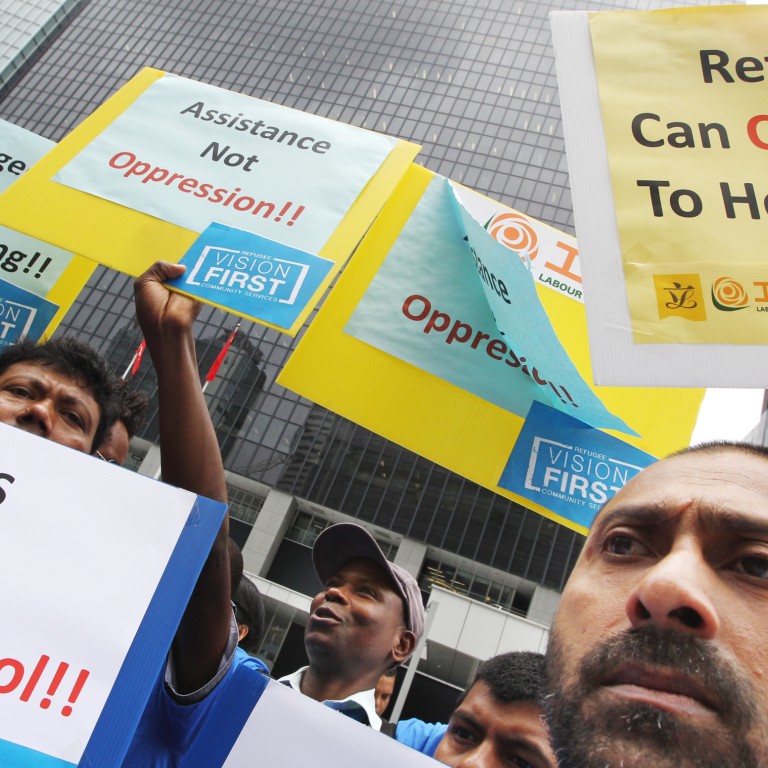
New housing help for asylum seekers under fire in Legislative Council
A higher rent allowance of HK$1,500 for foreigners seeking temporary refuge in the city is still far from meeting the subsistence level they need to get by, pan-democratic legislators say.
But the subsidy was aid, not welfare, the government countered. It said the HK$300 increase struck a balance between its humanitarian obligations and the need to avoid a “magnet effect” that might draw more asylum seekers to the city’s shores.
The revised package came under criticism by pan-democrats on the Legislative Council’s welfare services panel on Monday.
“What the government is doing now is forcing them to work illegally so that they would get arrested and repatriated,” independent lawmaker Wong Yuk-man said.
The Social Welfare Department estimated that the revised allowance of HK$1,500 should cover 100 per cent of the rent for 87 per cent of asylum seekers pay, up from 73 per cent.
The humanitarian package, proposed by the department and the Security Bureau, is expected to take effect next month.
For the first time, the government is offering refugees, asylum seekers and torture claimants – who are barred from working – one-off subsidies of up to HK$3,000 for a rent deposit and up to HK$750 to offset property agent fees.
It also adds a total of HK$470 to each claimant’s monthly allowances, taking the subsidies for rent, food and utilities to HK$1,500, HK$1,200 and HK$300, respectively. The food aid is provided in kind.
Dr Fernando Cheung Chiu-hung of the Labour Party and Emily Lau Wai-hing of the Democratic Party urged the government to bring the allowances on a par with the Comprehensive Social Security Assistance scheme for Hongkongers.
They also sought a conditional lifting of the ban on working, and to let asylum seekers carry out voluntary work so that they can have a chance to spend their time in Hong Kong more meaningfully.
Deputy secretary for security Maggie Wong Siu-chu said that allowing for paid work could send a wrong message and trigger an influx of asylum seekers.
“The allowance is humanitarian aid, not welfare,” Wong said.
As for doing voluntary work, any change should be feasible and should comply with the laws, she said.
Cheung asked the government to let more organisations help asylum seekers instead of continuing with the monopoly of the International Social Service Hong Kong branch, which is commissioned by the department to handle their housing, food, transport, clothing and other material provisions.
The government said it would consider signing up more contractors before the contract with the ISS expired at the end of this year.
Ahead of the panel meeting, social workers and human rights advocates described the revised package as underwhelming.
“This new welfare package is still far below what refugee families need to survive in safety and dignity in Hong Kong,” Refugee Advice Centre executive director Aleta Miller said. “We see people who have fled here for their lives forced to eat rotten food and sleep outdoors … No human being should have to live in such miserable conditions in such a prosperous city.
“While their claims are being heard, they would prefer to work to be self-reliant, but denied even that right, they are forced into dependency and destitution by a piecemeal welfare package.”
At a protest outside the Legco complex this morning, Shahzad Malik, 32, said he had fled Pakistan because of religious persecution.
Since arriving in 2007, he and his cousin had been relying on friends to make up the shortfall between the government’s subsidy of HK$2,400 and the pair’s actual expenses of HK$4,000, excluding food, he said.
Malik was jailed in May 2012 for working illegally for 11 months.
